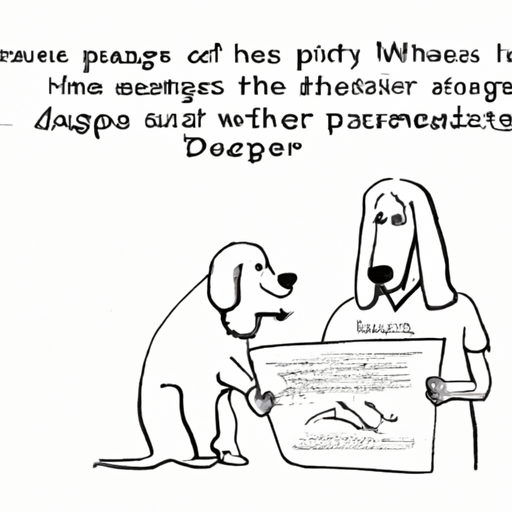As a caregiver, it can be deeply distressing to witness or discover that a mother dog has eaten her own puppies. It’s a behavior that seems completely at odds with the nurturing instinct we associate with motherhood, particularly in animals as loyal and loving as dogs. However, this phenomenon, while rare and heartbreaking, does have certain explanations rooted in biology, psychology, and the environment.
1. Biological Factors
The first and foremost factor that can lead to a mother dog consuming her puppies is related to biological reasons. These are often deeply ingrained and linked to the survival instincts of canines as a species.
Stress and Anxiety
Dogs, like humans, are prone to stress and anxiety. The birth of puppies is a significant event that could trigger stress in your dog, especially if it’s her first litter. This stress can drive a mother dog to harm or even eat her puppies.
Illness and Weakness
If a puppy is sick or weak, the mother might consume it as a way of protecting the rest of the litter. In the wild, weak or sickly offspring could attract predators, putting the entire litter at risk.
Nutritional Deficiency
A mother dog might consume her puppies to regain the nutrients lost during pregnancy and nursing, particularly if she is malnourished. This is more likely to occur in stray or neglected dogs.
2. Environmental Factors
Environmental factors can also play a role in this distressing behavior. These can be mitigated to some extent by providing a safe, calm, and supportive environment for the mother dog and her litter.
Disturbance
If the mother dog feels that her puppies are in danger due to too much noise, activity, or interference from humans or other animals, she might resort to eating them to protect them from perceived threats.
Poor Living Conditions
Poor living conditions, like dirty, cramped spaces, can cause stress and anxiety in the mother dog, which might lead to her harming her puppies.
3. Preventive Measures
You, as a caregiver, can take certain steps to prevent such incidents from occurring.
- Provide a peaceful and secure environment for the mother and her puppies.
- Limit disturbances during the first few weeks after birth.
- Ensure the mother dog is well-nourished and healthy, both before and after pregnancy.
- Regular veterinary check-ups for mother and puppies.
4. What to Do If It Happens
If the worst occurs and a mother dog harms or consumes her puppies, it’s important to remember not to punish her. This is a behavior rooted in instinct and stress, not spite or malice.
- Seek immediate veterinary help.
- The mother might need to be separated from the remaining puppies.
- Consider hand-rearing the remaining puppies.
5. Frequently Asked Questions
Why does a mother dog move her puppies?
Mother dogs might move their puppies if they feel the current environment is unsafe or insecure. This behavior is rooted in the instinct to protect the litter.
Can I touch the newborn puppies?
It’s generally safe to touch newborn puppies, but it should be minimized during the first few weeks to avoid causing stress to the mother and puppies.
How soon can a mother dog get spayed after giving birth?
Vets typically recommend waiting at least two months after the mother dog has weaned her puppies before considering spaying.
Why does a mother dog reject a puppy?
A mother dog might reject a puppy if it’s sick, weak, or has a birth defect. This behavior is a survival instinct intended to protect the rest of the litter.
Can a mother dog suffocate her puppies?
Yes, there are cases where a mother dog might accidentally suffocate her puppies by lying on them. This is more common in larger breeds and in dogs that are inexperienced mothers.
In conclusion, while it is a rare and disturbing occurrence, understanding the reasons behind why a mother dog might eat her puppies can help you take preventive measures and provide better care for your animals during this sensitive period.



